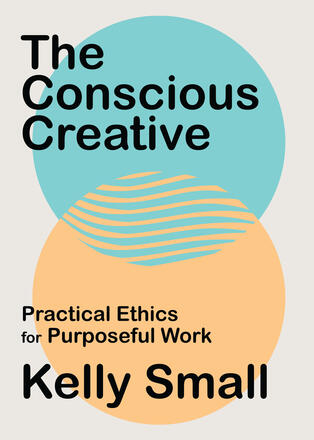
The Conscious Creative
Practical Ethics for Purposeful Work
La description
An actionable guide to mindfulness and practical ethics for any creative professional who wants to make a living without selling their soul.
Kelly Small is an award-winning creative director, designer and writer, and delivers conference keynotes and corporate training to major clients such as Google and Uber. They hold an interdisciplinary Master’s degree with research focused on creative industry ethics, activism and social innovation.
Reviews
Kelly Small’s experience as a former creative director provides valuable insight … Small’s thorough breakdown of ethical concerns in the workplace can benefit anyone wanting to grow as an ally in a nation rife with issues of disparity.
- Cascade
What Kelly Small brings to the table is a healthy dose of both inspiration and practicality … Kelly Small’s personal story is an inspiration in itself, shared throughout the book with candour and courage. If you’re a creative searching for cleaner, healthier, and socially just ways to practice, you’ll not find a better place to start looking. And the timing couldn’t be better.
- Applied Arts